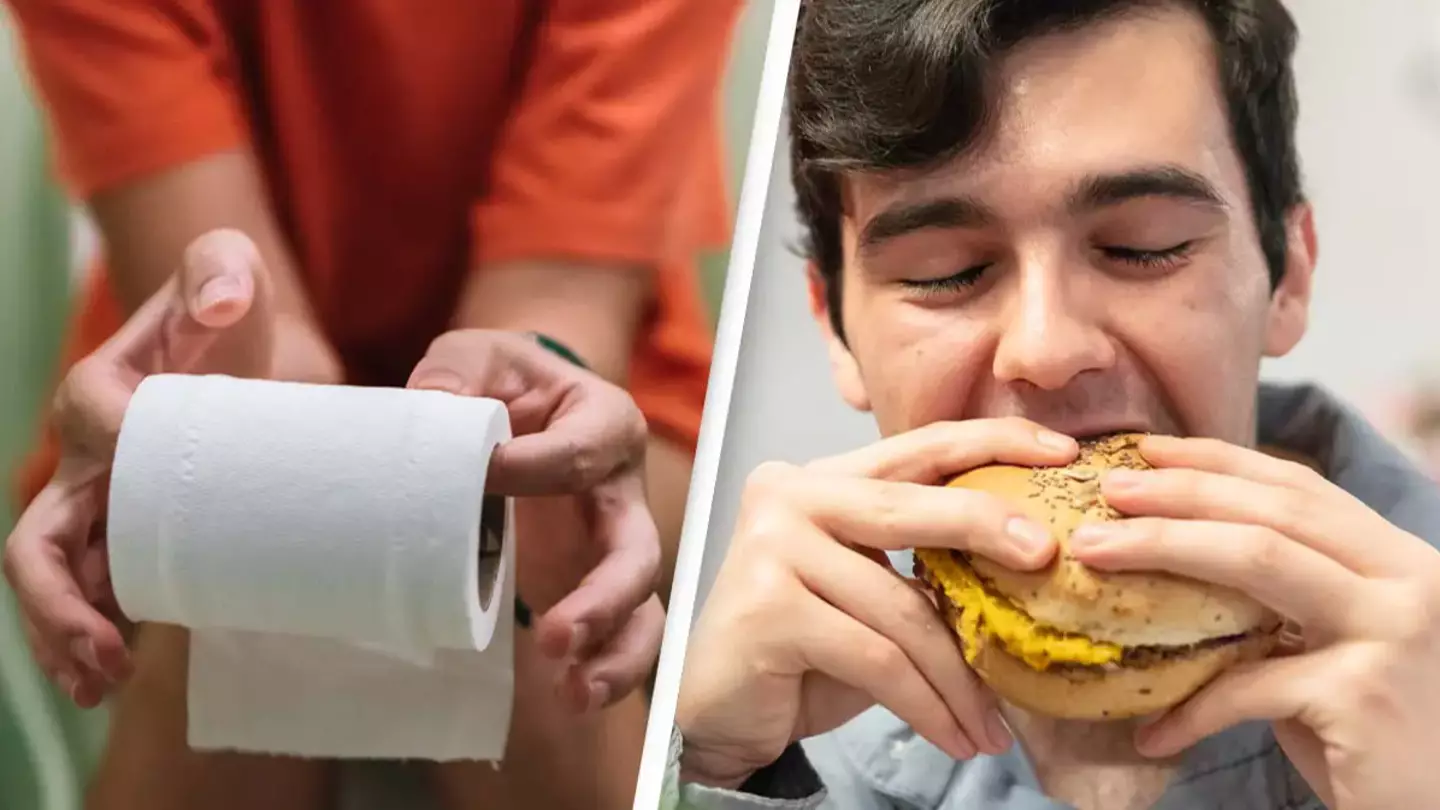If you frequently experience the urge to defecate immediately after eating, you might be curious about the significance of this phenomenon. A medical professional has provided an explanation that this widespread phenomena is connected to a natural body function that is referred known as the gastrocolic reflex. In spite of the fact that it could appear as though the food is leaving your digestive system in an instant, there is a scientific basis for this phenomenon.

A Comprehensive Understanding of the Gastrocolic Reflex
After you have eaten, your lower gastrointestinal (GI) tract will experience a physiological response known as the gastrocolic reflex. This reflex is quite natural, and it helps your body get ready for more meals by encouraging bowel movement. This is according to the statements of experts.
While you are eating, your stomach contracts, which causes messages to be sent to your brain, as Dr. Salhab explains. In response, your brain sends a signal to your colon, telling it to shrunk in order to make way for the food that is flowing in. It is not the meal that you just ate that is responsible for the stool and water that your colon expel after eating; rather, they are the result of food that has been digested in the past.
Some Reasons Why the Reflex Might Be Exaggerated in Certain Individuals
At times, the gastrocolic reflex can be very severe for certain people, notably those who have been diagnosed with irritable bowel syndrome (IBS). Symptoms of irritable bowel syndrome (IBS) include abdominal discomfort, diarrhea, gas, bloating, and constipation. IBS is a disorder that affects the gastrointestinal tract and can produce these symptoms.

The contractions of the colon can be exceptionally powerful in those who have irritable bowel syndrome (IBS), according to Dr. Salhab, which can cause substantial pain or even diarrhea immediately after eating. A number of reasons contribute to the difficulty of managing irritable bowel syndrome (IBS), one of which is the increased sensitivity of the gastrocolic reflex.
How to Deal with the Signs and Symptoms of an Overactive Gastrocolic Reflex
There are a few things you can do to alleviate your symptoms if you frequently experience discomfort or feelings of urgency to use the restroom after you have eaten. In order to alleviate the problem, Dr. Salhab suggests avoiding certain foods that are known to be triggers, such as the following:
To drink carbonated beverages
Beverage
Citrous-based foods
Items made from dairy
Items that are fried or greasy

Particularly in people who have a heightened sensitivity, these items have the potential to upset the digestive tract.
A Few Closing Remarks
Having the need to defecate immediately after eating is typically an indication of the gastrocolic reflex, which is a natural functioning of the body. If, on the other hand, the reflex gives you a significant amount of discomfort or has an effect on your day-to-day life, it is advisable to seek the advice of a medical practitioner in order to investigate the possibility of underlying diseases such as irritable bowel syndrome (IBS). Your digestive health can be better managed if you make some little alterations to your diet and have an awareness of the function of the gastrocolic reflex.
@thestomachdoc Find breakfast foods that won’t bloat #healthyfood #healthyrecipes #bloating #ibstok #guthealth #learnontiktok #learnwithtiktok #bloatingtips
